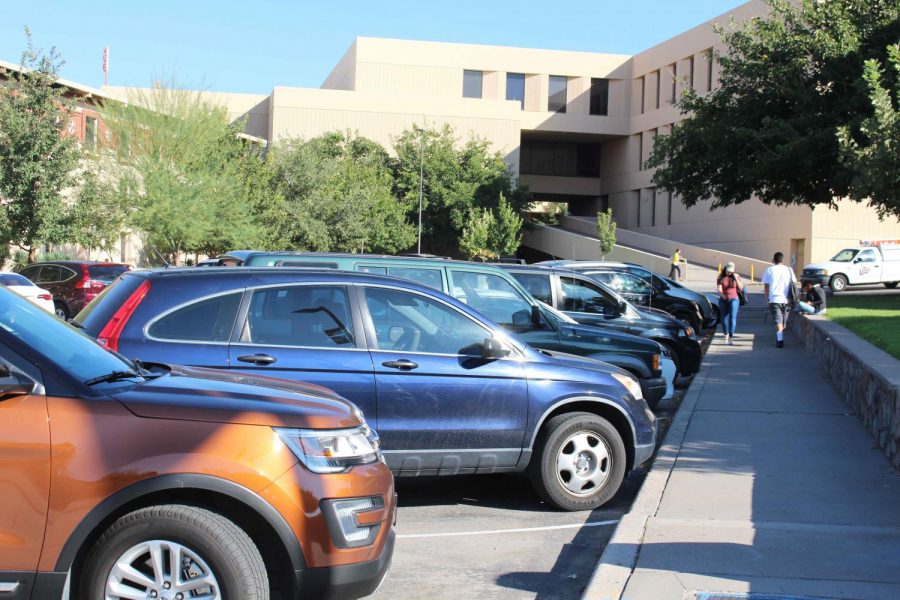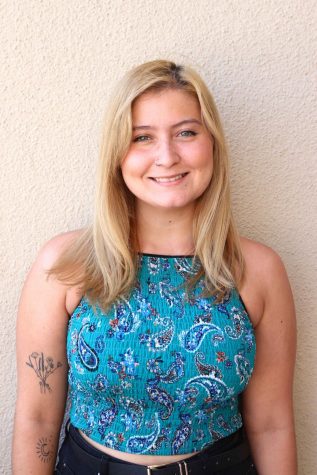A new research tool developed by a UTEP student and faculty might be the solution universities need to alleviate its parking problems.
After about two years of conducting research aimed at helping parking offices at universities across the country, doctoral civil engineering student Okan Gurbuz and professor Kelvin Cheu are ready to announce the results of their most recent study.
Students across UTEP are constantly facing a common struggle: finding parking before heading to class every day, even for those who have purchased a parking permit. The hunt to find an available parking space can be a hassle.
Some students find themselves arriving at UTEP hours before their class begins, while others are forced to park illegally in order to make it on time.
“Sometimes I’m even late because the parking is so full, making me late to class, and (I constantly get) tickets because I’ve had to (park in odd places),” Jacqueline Cervantes, 23, said.
For Eduardo Ovalle, 24, the process of purchasing a parking permit was just as difficult as finding parking.
“It was somewhat confusing at first and I had to check the site several times,” Ovalle said.
Gurbuz and Cheu’s research began with the goal of developing a model that could be used to predict the number of students driving to campus and what the price of the parking permits should be. Although the math could be now be predicted, Gurbuz wanted to take the research a step further in order to generate even more precise information. He decided to conduct a survey.
The project titled “Sparkman: A Smart Parking Management Tool for University Campuses” included a survey consisting of twelve questions to collect data to determine different parking patterns among students.
More than 1,000 UTEP student participated in the study, which Gurbuz conducted in the spring of this year. The study asked students everything from their classification, mode of transportation and their permit type to factors that influenced their permit purchase.
The study’s data showed that, out of the 1,022 participants, only 533 are parking permit holders. Also, while 80% of participants drive to school, 41% park in surrounding perimeters in and around campus.
As part of the survey, Gurbuz asked students what the main factor in purchasing a parking permit was and 40% of students said the cost of the permit was the most important factor.
“That is a good indicator that, if you play with the cost, you can see the effects in demand easily because nearly half of the students said cost is really important,” Gurbuz said.
The number one preferred demand for improvement made by students was to “make permit sales year-round and purchase as easy as buying concert tickets or booking a hotel online,” according to Gurbuz and Cheu’s research board.
Gurbuz is now using this model to create a generator that can be used by any university to predict the supply and demand of parking permits.
At a press conference earlier this semester, President Heather Wilson mentioned the construction of a new parking garage at UTEP.
Victor M. Pacheco, assistant vice president for Administration, said the goal for the new parking garage is to alleviate the parking issues on campus.
“From the garage they can access inner campus through Randolph Drive or the shuttle and will help alleviate the stress of finding parking,” Pacheco said.
The parking garage is expected to be built near Kidd Field on the corner of Randolph Drive and Glory Road and will include 700 parking spaces. Construction of the garage is expected to begin in about three to five months and will take up to 18 months to complete.
“I’m hoping we will have it up and running sometime somewhere in the year 2021,” Pacheco said.
The office of Administration and Oversight is aware of the investigation conducted by Gurbuz but are not planning on using the data for the construction of the new parking garage.
Paulina Spencer may be reached at [email protected]











